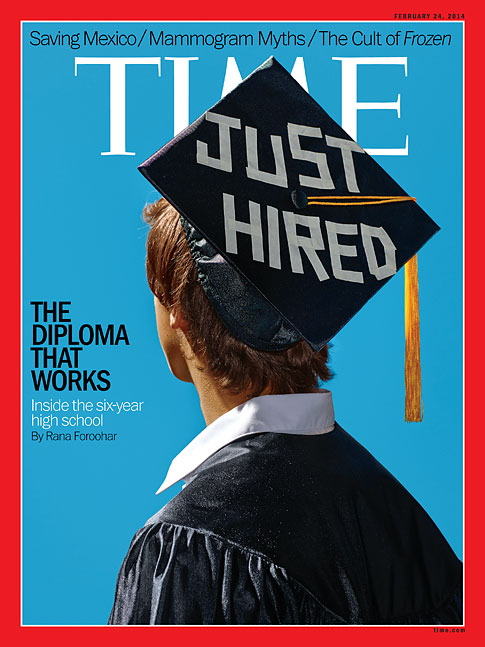
(4 of 7)
Some of these efforts have been coming from enlightened blue chips like GE, Procter & Gamble and Microsoft. Back in 2007, ExxonMobil, for example, helped take two Texas programs that had proven results bolstering math and science education in high schools--UTeach and the Advanced Placement Training and Incentive Programs--and make them national.
Other programs aim to help high school kids earn college credits in order to offset costs and improve their chances of graduation and progression on to college. The Gates Foundation--funded Jobs for the Future program has redesigned 280 schools serving 80,000 students to offer such courses, with great success--90% of their kids graduate from high school, 12 points higher than the national average. Another effort, the National Academy Foundation, launched by former Citigroup chairman Sanford Weill, exposes high schoolers to the world of work through career-oriented courses in high-growth fields and through internships. Their academies--located in more than 400 U.S. schools--have a 96% graduation rate.
Still, connections between public schools and the private sector remain scattered, limited and haphazard, as illustrated by a new study from the Gates Foundation, BCG and the Harvard Business School. The study interviewed superintendents of the 10,000 largest U.S. school districts about business involvement in their areas. While 95% said business was in some way involved, in most cases the involvement was limited to writing checks. Only 12% of superintendents saw business as deeply involved. Which is a shame, since this survey (as well as many others) found hugely improved student outcomes in areas with that deep business participation.
The P-Tech model seeks a deeper and more permanent connection. "In order to make sure the best businesses locate here, I need to give employers certainty about the skill set of our people," says Chicago Mayor Rahm Emanuel. Chicago is connecting Sarah E. Goode and the other four P-Tech schools that it launched in September 2012 with community colleges that focus on the city's top growth areas--including logistics and transport, health care, IT and manufacturing--and locating the schools in neighborhoods that are a short commute away from jobs in those fields. As in New York, the curriculum of these schools is developed in conjunction with the public school system, the City Colleges of Chicago (which, like CUNY, handles the college courses) and the companies--including not just IBM but also Cisco, Microsoft, Verizon Wireless and Motorola Solutions--that agree to sponsor them.
That doesn't mean pouring in corporate money--Chicago's programs are paid for entirely with existing public funds--so much as knowledge. When IBM and the other private-sector sponsors sign on, they are essentially promising to help mentor kids and develop a curriculum that will churn out the kind of workers to whom they can guarantee decently paid jobs. Currently, "almost 1,800 jobs at IBM alone are going unfilled" due to a lack of appropriate candidates, says Litow, a former New York City schools deputy chancellor hired in 1993 by then IBM CEO Louis V. Gerstner Jr. to develop a new model for education to address IBM's skills gap.
